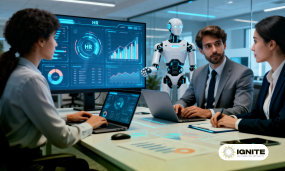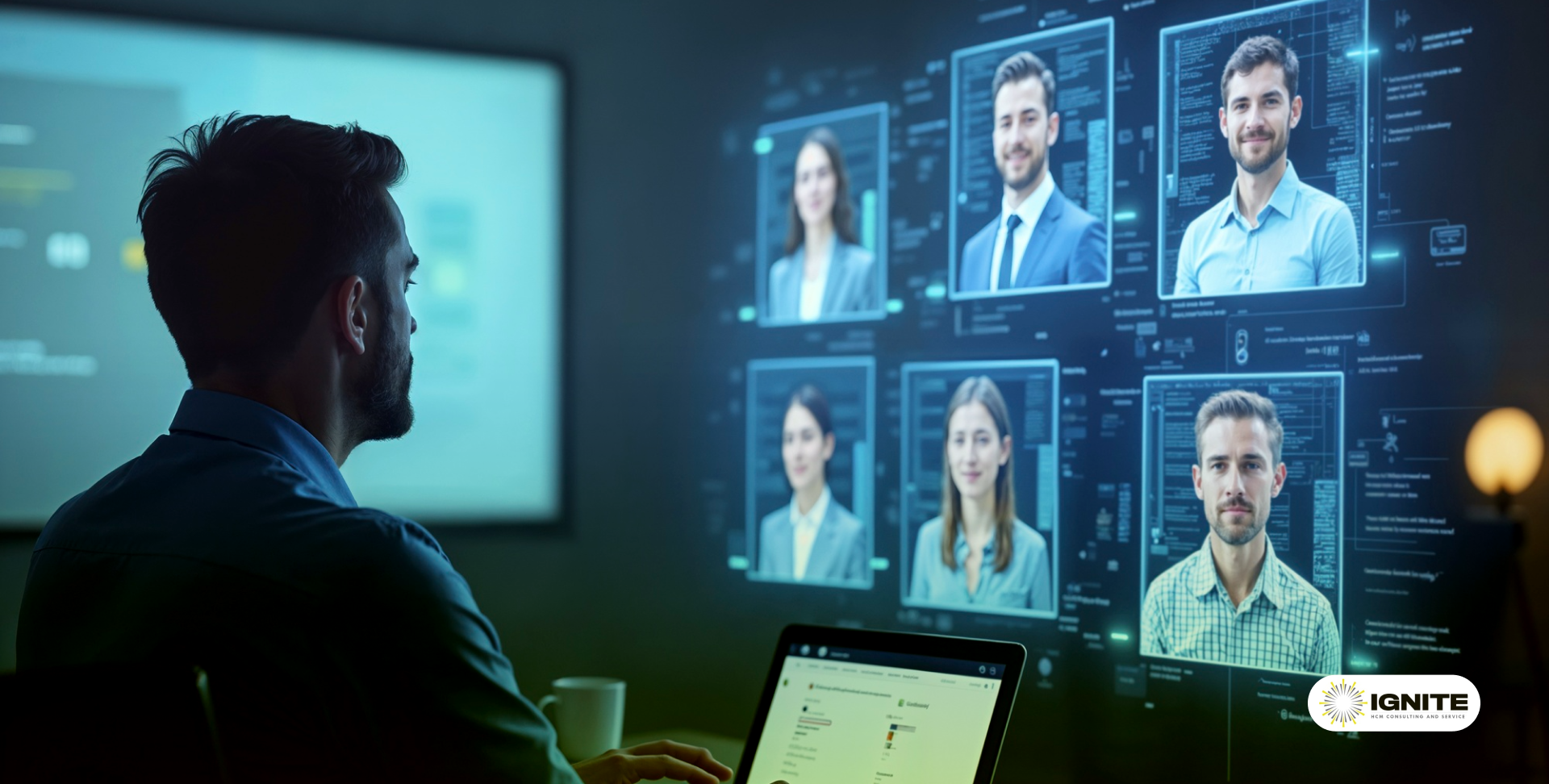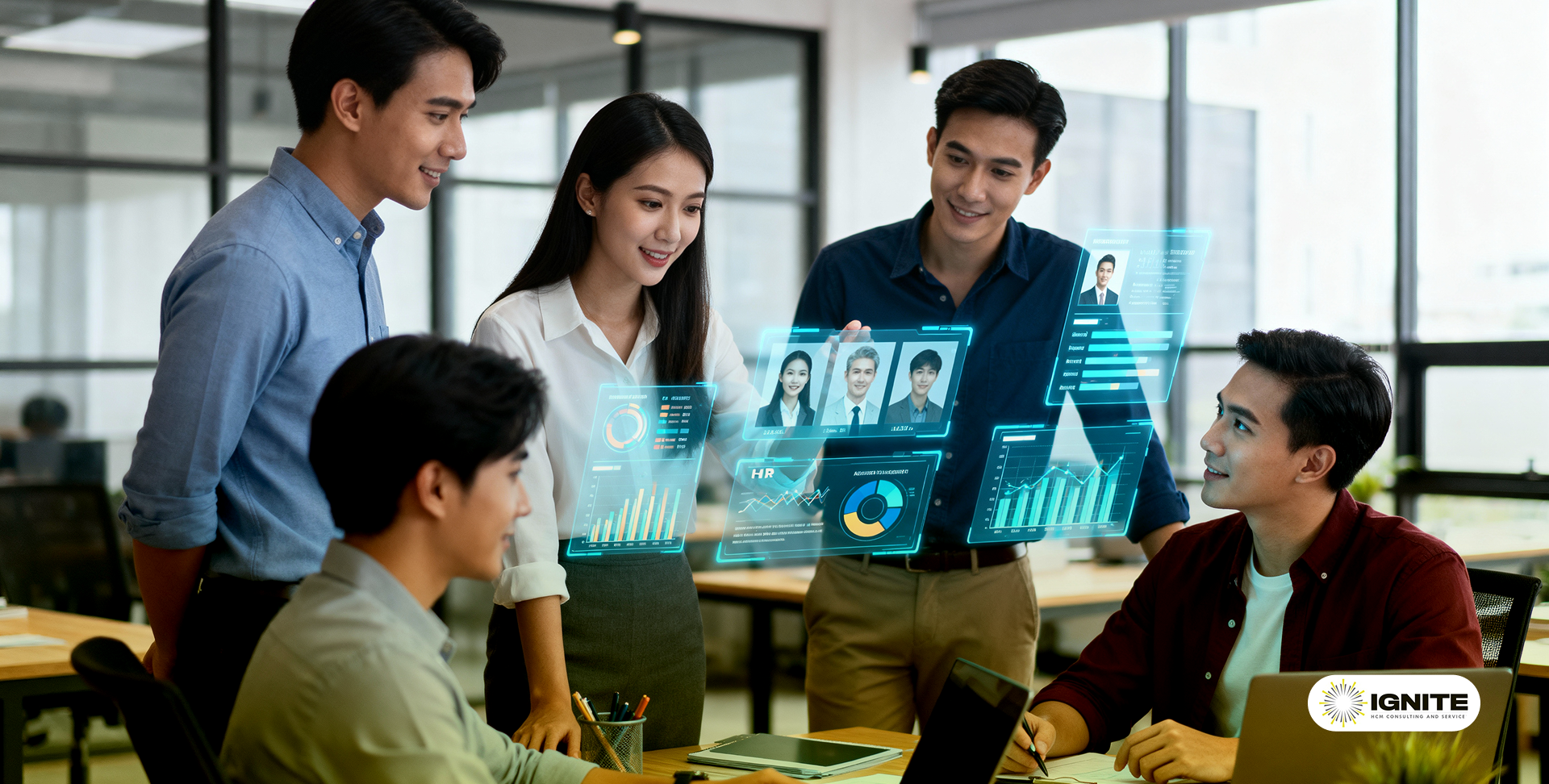
In recent years, artificial intelligence (AI) has begun to transform nearly every business function—and human resources is no exception. By leveraging the power of AI and data analytics, HR teams are gaining unprecedented insights that allow them to make smarter, more strategic decisions across the entire employee lifecycle. Welcome to the era of Augmented HR.

Augmented HR refers to the combination of artificial intelligence technologies with human expertise and judgment to enhance HR processes and decision-making. Rather than replacing HR professionals, AI acts as a force multiplier—equipping HR teams with powerful tools and insights to perform their jobs more effectively.
"AI doesn't take away the 'human' part of human resources," explains Jason Averbook, CEO and Co-Founder of Leapgen, a leading HR consulting firm. "It actually enables HR to be more human by freeing up time and mental space to focus on high-value activities like coaching, development, and building human connections."
From recruiting to performance management to employee engagement, AI is transforming virtually every aspect of HR. Let's take a closer look at some of the key areas where AI is making a significant impact:
Finding and attracting top talent is a major challenge for many organizations—especially in today's tight labor market. AI-powered recruiting tools are helping companies identify and engage candidates more effectively by:
By leveraging AI, recruiters can cast a wider net, engage candidates faster, and ultimately make higher-quality hires in less time. Industry research shows that companies using AI-based hiring software report 35% reductions in time to hire, 32% increases in employee performance, and 20% decreases in employee turnover.
As the skills employees need continue to evolve at an accelerating pace, AI is playing a key role in upskilling and reskilling the workforce. AI-powered learning platforms can:
By making learning more engaging, personalized, and easily accessible in the flow of work, AI-driven learning platforms are helping organizations close critical skill gaps and keep pace with the future of work. Companies that have adopted AI-based learning solutions report a 24% increase in the speed of developing new skills.
Annual reviews and backward-looking performance evaluations are quickly becoming a thing of the past. AI technologies are enabling a more continuous, development-focused, and data-driven approach to performance management through:
When combined with human coaching and development conversations, these AI-driven insights help employees reach their full potential while providing managers with a more well-rounded view of performance. Companies using continuous performance management practices are 39% more likely to outperform their competitors.
Creating an engaging employee experience is a top priority for most HR teams today. But understanding what really motivates and engages employees can be challenging. That's where AI comes in. AI-based employee engagement tools can:
By continuously gathering and analyzing employee feedback, these AI tools provide HR teams with real-time, actionable insights to improve the overall employee experience. Organizations that invest heavily in employee experience are 4.2x more likely to be included on Glassdoor's Best Places to Work list.
Perhaps the most significant potential impact of AI in HR is its ability to turn the massive amounts of employee data collected by most companies into predictive insights that inform strategic workforce decisions. AI-powered HR analytics tools can:
With AI, HR teams can finally connect people data to business outcomes and play a more proactive role in strategic workforce planning. According to Deloitte, 69% of organizations are building integrated systems to analyze worker-related data, and 17% already have real-time dashboards to crunch the numbers.
While the potential of AI in HR is immense, it's important to remember that AI is not a magic wand. To be effective, AI insights must be balanced with human expertise and judgment. HR professionals still play a vital role in interpreting data, thinking critically about AI recommendations, and considering important human factors that may not be captured in data alone.
"AI can provide incredibly powerful insights, but those insights are only as good as the data and assumptions that go into the algorithms," cautions Frank Moreno, VP of Product at Adeptmind. "It's critical that HR teams have a strong understanding of how AI systems work, what biases they may contain, and how to use AI outputs responsibly in their decision making."
This is where the concept of "augmented intelligence" comes into play. Augmented intelligence recognizes that AI is most effective when it complements and extends human capabilities, rather than replacing them entirely. In an augmented HR model, AI handles the time-consuming, repetitive aspects of HR, freeing up HR professionals to focus on uniquely human work like building relationships, thinking strategically, and exercising sound judgment.
"AI will never replace the need for emotionally intelligent, empathetic HR professionals who can coach, develop, and engage employees on a human level," says Averbook. "But when HR teams are able to offload administrative tasks and gain data-driven insights with the help of AI, they are empowered to do their best work and drive better outcomes for the business."
For HR teams looking to get started with AI, the key is to start small and focused. Rather than trying to implement AI across every HR function at once, identify one or two high-impact use cases where AI could drive significant value. This might be using AI to screen resumes, personalize learning, or analyze employee survey data.
It's also important to take the time upfront to ensure data quality and integrity. "Garbage in, garbage out" very much applies to AI—if the data used to train AI models is incomplete, inaccurate, or biased, the insights generated will be flawed. HR teams should work closely with IT to audit and clean their people data before feeding it into any AI system.
Finally, don't underestimate the importance of change management. Implementing AI often requires significant changes to processes, roles, and ways of working. HR teams will need to clearly communicate the purpose and benefits of AI, provide training on how to use new tools, and continually reinforce the importance of balancing AI insights with human judgment.

As AI technologies continue to advance, the potential applications in HR will only grow. We're not far from a future where AI can predict which employees are most likely to be successful in a given role, recommend personalized development plans, and even coach managers on how to have better conversations with their teams.
But rather than being replaced by AI, the role of HR will evolve to be more strategic, human-centered, and valuable than ever. By combining powerful AI insights with empathetic, emotionally intelligent human judgment, HR teams will be able to create unbiased, personalized, engaging experiences for every employee.
"The most successful HR teams will be those that are able to strike the right balance between artificial and human intelligence," says Ashley Hathaway, Head of Talent Acquisition at Solotech. "They will use AI to gain new insights and efficiencies, but never lose sight of the fundamental human skills required to build great teams and cultures."
In the end, Augmented HR is about creating a mutually beneficial relationship between people and technology—one where AI enhances and extends the capabilities of HR, and HR provides the human judgment and ethics to ensure AI is used responsibly. It's at this intersection of cutting-edge technology and human expertise that the real magic happens.
As more HR teams embrace this augmented approach, the businesses that will thrive in the future will be those that are able to attract, develop, and retain the best talent by combining the power of AI with the irreplaceable human elements of HR. Welcome to the bright future of Augmented HR.
Ready to transform your HR function? Discover how AI can augment your team's capabilities while keeping the human touch at the center.


